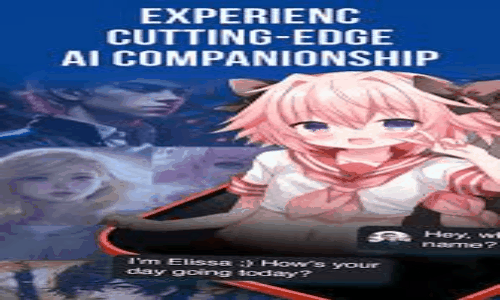Advertisements
In an increasingly connected world filled with instant information, the search for knowledge and a deeper understanding of what surrounds us has become a vital necessity.
Formal education is undoubtedly an essential tool for the formation of critical and informed individuals, but we often find ourselves limited to school and academic curricula that, although valuable, may not encompass the wealth of perspectives and knowledge available beyond the walls of the classroom.
Advertisements
This is where books play an irreplaceable role, acting as portals to new cultures, revolutionary ideas, and broader understandings of our world and the universe we inhabit. 📚✨
In this article, we’ll explore five extraordinary literary works that promise to expand your horizons, defying conventions and providing insights that go far beyond what can be found in traditional curricula.
Advertisements
Each of these books was selected not only for its literary quality, but also for its ability to inspire, educate and provoke deep reflections about the world we live in.
By delving into the pages of these works, the reader will find not only an escape from routine, but also a chance to see reality through new lenses, question established paradigms and, perhaps, find answers to questions that they had not even considered.
The first book we will cover is a historical journey that goes back centuries, offering a detailed look at how we got to the present and what lessons we can learn from the past. We will then embark on a philosophical exploration that invites introspection and questioning of our role as individuals in a vast and complex universe.
The third book takes us on a cultural immersion, allowing us to experience the life and traditions of different societies, fostering empathy and intercultural understanding. Soon after, a title that challenges the boundaries of science encourages us to reconsider what we know about the natural world and our place in it. Finally, we conclude with a work that masterfully combines fiction and reality, exploring contemporary social issues with a depth that only literature can provide.
Prepare yourself for a literary journey that promises not only to inform, but to transform. As we progress through these pages, you will be invited to reflect on the complexity and beauty of the world, questioning your own perceptions and expanding your intellectual horizons.
Recommended Articles

The Power of Literature in Expanding Horizons
It is not just about acquiring knowledge, but about developing a new way of seeing and interacting with the world around us. Reading these works is an invitation to become a more conscious, informed and empathetic citizen, ready to face the challenges of an uncertain future with wisdom and understanding. 🌍🧠
Literature has the undeniable power to transcend physical and cultural barriers, allowing readers to explore different times, places, and perspectives. When we immerse ourselves in a good book, we are transported to worlds beyond our everyday lives, expanding our understanding of life and society. Below, we will present five books that have the potential to expand your horizons beyond the classroom, each offering a unique and enriching view of the world.
Literature has the potential to be a mirror of the world, reflecting its complexities and nuances in ways that we cannot perceive simply by observing it. Books have the ability to make us question, reflect, and eventually transform our perceptions. Not only do we become more informed, but we also become more empathetic, as literature often puts us in the shoes of others, allowing us to experience realities different from our own. In addition, reading stimulates the mind, promoting creativity and the ability to think critically and analytically.
The books we will discuss here have been chosen for their ability to enrich the reader in a variety of ways. Each offers not only knowledge but also a new perspective, challenging us to see the world in ways we may never have considered before. Let’s explore the impact these books have on the way we see the world and ourselves.
Exploring Cultures with “One Hundred Years of Solitude”
Gabriel García Márquez, author of the classic “One Hundred Years of Solitude,” invites us to enter the magical and complex world of the Buendía family in the fictional village of Macondo. This book is a prime example of magical realism, a genre that blends elements of fantasy with everyday reality. Through the intertwined stories of the Buendías, Márquez explores themes of identity, power, and destiny, presenting a rich cultural and historical tapestry of Latin America.
In “One Hundred Years of Solitude,” Márquez explores the history and struggles of the Latin American continent, including colonization, war, and politics. The narrative, full of symbolism and metaphors, reflects the social and cultural complexities that have marked the region. For the reader, it is an opportunity to better understand the rich cultural diversity of Latin America, as well as the historical forces that have shaped its present.
The book is a gateway into the exploration of magical realism, a genre that offers new ways of seeing reality. By blending the fantastic with the everyday, “One Hundred Years of Solitude” challenges our perceptions of normality, inviting us to question what we consider real. For those who want a deeper look at the cultural and literary impact of this book, I recommend watching the video “Exploring Magic Realism in One Hundred Years of Solitude” from the Book Haven channel.
The Immensity of Nature in “Walden”
Henry David Thoreau’s “Walden” is an introspective and philosophical account of simple living and connecting with nature. Written during Thoreau’s time living in a secluded cabin on the shores of Walden Pond, the book explores the idea that true happiness and wisdom come from introspection and living in harmony with nature.
Thoreau advocates a life of deliberate simplicity, an escape from the distractions and complexities of modern society. He argues that by simplifying our lives, we can reconnect with what truly matters and find deeper meaning in life. This message resonates strongly in an increasingly fast-paced and digitized world, encouraging readers to reconsider their priorities and seek a more genuine connection with the natural world.
“Walden” is more than just a simple account of a life experience; it’s a manifesto on the importance of self-reliance, personal reflection, and respect for nature. For those interested in a deeper dive into Thoreau’s philosophy, the School of Life video “Henry David Thoreau and the Philosophy of Walden” offers an insightful and inspiring analysis.

Addressing Social Challenges with “To Kill a Mockingbird”
Harper Lee's "To Kill a Mockingbird" is a masterpiece of American literature that addresses issues of race, justice, and morality. Set in the American South during the Great Depression, the book tells the story of Scout Finch, a young woman who witnesses the challenges and prejudices faced by her father, Atticus Finch, a lawyer who defends a black man wrongly accused of rape.
Through Scout’s eyes, Lee exposes the racial injustices and social tensions of her time. The book is a powerful critique of inequality and discrimination, challenging readers to confront their own prejudices and fight for a more just world. To Kill a Mockingbird remains essential reading for those seeking to understand the roots of racism and ways to combat it.
Lee’s narrative not only illuminates social struggles, but also highlights the power of empathy and compassion. By portraying characters who fight for justice in the face of adversity, To Kill a Mockingbird inspires readers to become agents of change in their own communities. For a more in-depth look at the book’s impact and legacy, I recommend watching the PBS video “The Impact of To Kill a Mockingbird.”
Philosophical Reflections on “Sophie’s World”
Jostein Gaarder’s Sophie’s World is a novel that combines fiction and philosophy, offering an accessible and engaging introduction to Western philosophical thought. Through the story of Sophie, a teenager who receives mysterious philosophical letters, Gaarder guides readers on a journey through the history of philosophy, from the pre-Socratic philosophers to contemporary thinkers.
This book is a unique opportunity to explore the big questions of life and existence, while learning about the ideas and theories that have shaped human thought over the centuries. Sophie’s World is not only an educational work; it is also a literary adventure that invites readers to question their own beliefs and seek knowledge.
Gaarder’s approach makes philosophy accessible and engaging, demystifying complex concepts and making them relevant to the modern reader. For those interested in exploring more about the intersection of philosophy and literature, Wisecrack’s video “Sophie’s World: A Journey into Philosophy” offers valuable and thought-provoking insights.
Traveling the Universe with “Cosmos”
Carl Sagan’s “Cosmos” is a seminal work that explores the universe and humanity’s place in it. Sagan, a renowned astrophysicist and science communicator, takes readers on a journey through time and space, explaining complex scientific concepts in an accessible and engaging way.
The book covers a wide range of topics, from the origin of the universe and the evolution of life on Earth to the search for extraterrestrial life and the future of space exploration. “Cosmos” is not just an introduction to science; it is also a reflection on humanity’s role in the cosmos and the importance of critical thinking and scientific curiosity.
Sagan challenges readers to look beyond their everyday concerns and contemplate the big questions of the universe. His writing is both informative and poetic, capturing the beauty and complexity of the cosmos. For an inspiring visual exploration of Sagan’s work, the video “Cosmos: A Personal Voyage” from the CarlSaganPortal channel is an excellent companion to the book.
BookAuthorMain ThemeOne Hundred Years of SolitudeGabriel García MárquezMagical realism, Latin American cultureWaldenHenry David ThoreauNature, simple life, philosophyTo Kill a MockingbirdHarper LeeJustice, race, moralitySophie's WorldJostein GaarderPhilosophy, history of thoughtCosmosCarl SaganScience, universe, curiosity
- Check out the table above for a quick comparison of the topics covered by each book.
- Watch the suggested videos for a deeper understanding of the topics discussed.
The transformative power of literature is undeniable. With these five books, you can expand your horizons and explore new ways of thinking and understanding the world around you. Each work is a window into a new perspective, offering not only knowledge, but also inspiration and reflection.

Conclusion
The conclusion of this article leads us to a deep reflection on the lasting impact of literature in broadening our horizons and understanding the complexities of the world around us. Throughout the pages, we explore five works that, in different ways, challenge and enrich our perception of reality. Let us now recap the main points discussed and highlight the importance of this literary journey.
Recap of Main Points
We begin our journey with Gabriel García Márquez’s “One Hundred Years of Solitude,” which, through magical realism, transports us to the rich cultural and historical tapestry of Latin America. The saga of the Buendía family in Macondo reveals the nuances of identity, power, and destiny, and provides us with a clearer view of the historical forces that shaped the continent. This book not only entertains us, but also challenges us to question our perceptions of normality and reality.
We move on to Henry David Thoreau’s “Walden,” a work that invites us to reconsider our priorities and value simplicity and introspection. Thoreau’s connection with nature offers us a break from modern distractions, allowing us to seek a deeper meaning in life. In an increasingly digital and fast-paced world, “Walden” teaches us the value of self-sufficiency and respect for the natural environment.
Harper Lee’s “To Kill a Mockingbird” confronts the harsh realities of racial and social injustice. The story of Scout Finch and her father, Atticus, is a powerful critique of discrimination and a call for empathy and compassion. This work challenges us to confront our prejudices and fight for a more just and equal world, serving as a constant reminder that literature can be a powerful tool for social change.
“Sophie’s World” by Jostein Gaarder takes us on a philosophical adventure that makes complex concepts of Western thought accessible. Through the mysterious philosophical letters that Sophie receives, we are led to question our own beliefs and seek knowledge. This work highlights the importance of philosophy in shaping our understanding of the world and ourselves.
Finally, Carl Sagan’s “Cosmos” takes us on a cosmic journey of scientific exploration, instigating our curiosity and critical thinking. Sagan challenges us to look beyond our everyday concerns and contemplate our role in the universe.




